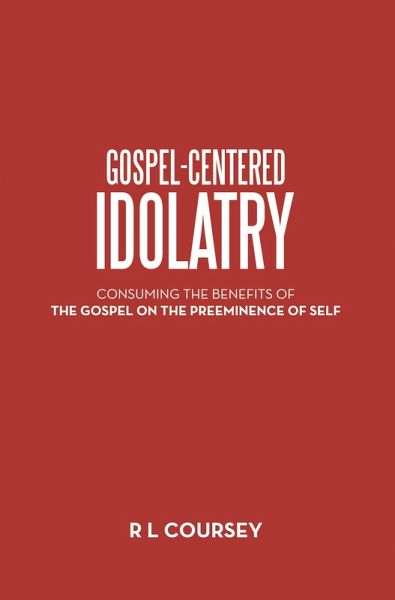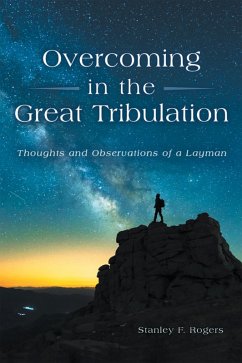
Gospel-Centered Idolatry (eBook, ePUB)
Consuming the Benefits of the Gospel on the Preeminence of Self
Versandkostenfrei!
Sofort per Download lieferbar
2,99 €
inkl. MwSt.
Weitere Ausgaben:

PAYBACK Punkte
1 °P sammeln!
Thomas Chalmers, in his classic sermon entited, "The Expulsive Power of a New Affection," correctly ascribes subjective power to subjective affections, for love does have an expulsive power, whether one loves God to the despising of self, or loves self to the despising of God. But he incorrectly sides with objective justification, full pardon and gracious acceptance as the power that creates love and the engine that empowers sanctification. He is right to suggest that a new affection has expulsive power, but wrong to suggest that the source and power of a new affection is primarily in the indi...
Thomas Chalmers, in his classic sermon entited, "The Expulsive Power of a New Affection," correctly ascribes subjective power to subjective affections, for love does have an expulsive power, whether one loves God to the despising of self, or loves self to the despising of God. But he incorrectly sides with objective justification, full pardon and gracious acceptance as the power that creates love and the engine that empowers sanctification. He is right to suggest that a new affection has expulsive power, but wrong to suggest that the source and power of a new affection is primarily in the indicative benefits.
Jonathan Edwards, on the other hand, sided with regeneration for the obvious reason that without a new nature, the natural man can only be constrained by outside considerations (the indicatives) to superficially walk in newness of life (the imperatives). Such considerations mght produce change that rises as high as the outward performance of the Legalist, but it is still only the superficial height that self-love alone can achieve.
The Spirit's work of illuminating the higher glory and beauty of Christ to the soul is the only source of an affection that can be called new. If the expulsive power of a new affection does not dethrone self as one's primary concern in life and theology, then what exactly is being expulsed by the power of the gospel? If one's religion does not surpass one's primary concern for what's in it for oneself, then one's self-love may have an expulsive power, but it will be the light of the glory of God in the face of Christ Jesus that is expulsed by the power of self-love.
The irony of the cross was that Christ was crucified by those who already had a knowledge of God's steadfast love and rejoiced in spiritual priviledges. The proper force and source behind the believer's love for God is not found in the objective benefits as they reflect upon the believer's high privileges, but God's power alone as it is exerted in the soul by the Spirit imparting a new heart, new affections and a new principle of action that did not exist prior. Good fruit is produced only by a good tree, and however constrained by outside forces, a bad tree cannot be manipulated to produce fruit contrary to its nature.
Jonathan Edwards, on the other hand, sided with regeneration for the obvious reason that without a new nature, the natural man can only be constrained by outside considerations (the indicatives) to superficially walk in newness of life (the imperatives). Such considerations mght produce change that rises as high as the outward performance of the Legalist, but it is still only the superficial height that self-love alone can achieve.
The Spirit's work of illuminating the higher glory and beauty of Christ to the soul is the only source of an affection that can be called new. If the expulsive power of a new affection does not dethrone self as one's primary concern in life and theology, then what exactly is being expulsed by the power of the gospel? If one's religion does not surpass one's primary concern for what's in it for oneself, then one's self-love may have an expulsive power, but it will be the light of the glory of God in the face of Christ Jesus that is expulsed by the power of self-love.
The irony of the cross was that Christ was crucified by those who already had a knowledge of God's steadfast love and rejoiced in spiritual priviledges. The proper force and source behind the believer's love for God is not found in the objective benefits as they reflect upon the believer's high privileges, but God's power alone as it is exerted in the soul by the Spirit imparting a new heart, new affections and a new principle of action that did not exist prior. Good fruit is produced only by a good tree, and however constrained by outside forces, a bad tree cannot be manipulated to produce fruit contrary to its nature.
Dieser Download kann aus rechtlichen Gründen nur mit Rechnungsadresse in A, D ausgeliefert werden.













